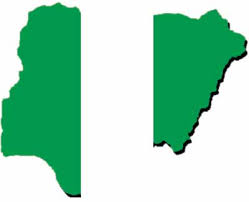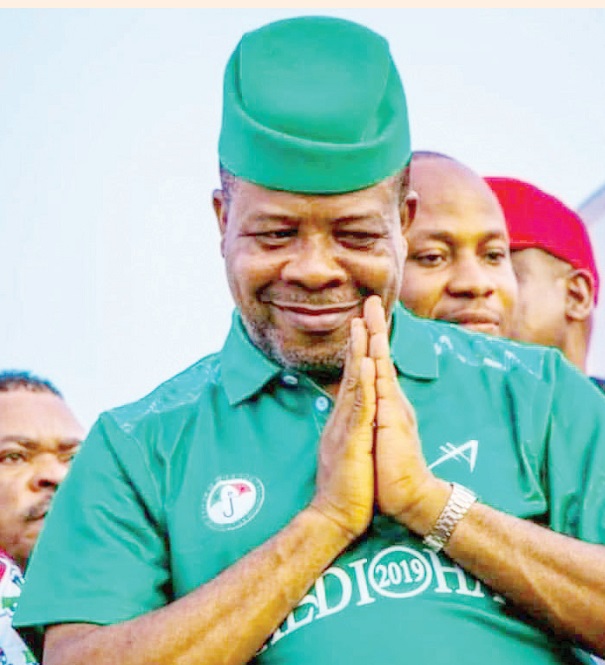Why Nigerian languages are dying, needing rescue

A conversation with Tobi Olude,14,is smooth until Yoruba (his native language) becomes the currency of exchange.
Born to an Egba father and an Ekiti mother, who are engineer and nurse respectively, the only approved language of communication by his father, is the English Language.
For Tobi, speaking his father’s Egba, in Ogun State dialect, is a tall order, just as he struggles to make a meaningful statement in Yoruba language. “ I am not really used to speaking Yoruba. My parents communicate with us (children) in English. It’s not that I don’t like the language,but I don’t know how to speak it. Besides, my dad does not allow it. So, there is really no way I can learn it except when our Yoruba teacher comes for her weekly Friday class to teach us,’’ he said.
Kunle Ajiboye is a member of a white garment church. Kunle is more than just a nominal member of a congregation that has a preponderance of Yoruba population and a mélange of other tribes. Kunle told our correspondent that he set tongues wagging when he read a Bible text that was meant to be read in his native Yoruba language in English
after the first had already been read in the English Language.
For him, reading Yoruba texts is as difficult as squeezing water out of rock. He said, “I can only speak Yoruba, I can’t really read it. I try as much as possible to avoid embarrassing myself by reading in a language I can’t read and write perfectly.
Truth is, I was even shocked that my name was penciled down to read the Yoruba text. I had told the secretary that I could not read the Yoruba Bible.’’
However, some Nigerians have raise their concerns over what they believe to be the gradual extinction of our languages. This is, especially more worrisome as, apart from our major languages, such as, Yoruba, Hausa-Fulani and Igbo, several other languages are spread across the six geo-political regions of South west, South South; South East; North Central; North East and North west. However, and more significant is that, of the over 500 languages spoken in Nigeria, not less than nine of them have gone into extinction, according to language researchers.
It is also a fact that languages are believed in some quarters, as the most potent instrument of preserving our heritage.
In the words of a former South African President, Dr. Nelson Mandela,‘‘If you talk to a man in a language he understands, that goes to his head. If you talk to him in his language, that goes to his heart.’’
According to the United Nations Educational Scientific and Cultural Organisation(UNESCO),Mother languages in a multilingual approach are essential components of quality education, which is itself the foundation for empowering women and men and their societies, requiring that we must recognize and nurture this power, in order to leave no one behind to craft a more just and sustainable future for all.
In 1999, UNESCO declared that ‘International Mother Language Day’ be celebrated, following the killing of some youths, who protested that Bengali Be be recognized as one of the national languages in Pakistan.
On February 21,2017, this year’s Mother Language Day was celebrated across the world.
In Nigeria; it was a day for some Nigerians to reflect on how to survive the threat posed by the English Language to our local languages, such as, Yoruba, Hausa-Fulfude, Igbo, Efik, Ibibio, among other local languages, with a view to saving them from gradual death.
A public school administrator and teacher, Mr Adegoke Adelani(not real name),says the importance of our local languages cannot be overemphasized, as research has shown that teaching in a our local languages is the best way to educate a child and inculcate societal values and norms.
Adegoke, who has over three decades of practical teaching experience, said, ‘‘Our languages are very expressive.
When we translate them certain things may be lost. It’s unfortunate that our languages face the threat of extinction and it’s due to the interference of foreign languages. English has suppressed so many languages. It’s sad that we don’t follow up on our research in this part of the world.
There was a time late Prof Babatunde Fafunwa conducted a research on our local languages for many years. Findings from his research shows that the best way to educate a child is through our local languages. Let’s dust the report.’’
On how to save our languages from extinction, Adegoke said,‘‘Let each region teach with their language in schools. Teachers know what to do.
There are so many talented artisans by the roadside that can become fantastic engineers, scientists, etc, if they are trained in our higher institutions of learning in our local languages. Majority of the expatriates we bring from China, Korea, Japan don’t speak English.
What that tells you is that they were trained in their local languages; and we pay for their services here.’’
Reacting to the suggestion that passing an indigenous language be made as an admission requirement into higher institutions of learning, Adegoke said, ‘‘ If you say they must pass an indigenous language to secure admission into higher institutions of learning, they will read to pass and drop it.’’
He further stated that, ‘‘English language has killed our intellect and initiative and made us second class citizens in our country.
Suppression of our indigenous languages is another form of slavery.’’
Also, the first Nigerian woman to bag a PhD in philosophy, Prof Sophie Oluwole, says the attitude to our local languages is that they are inferior to English. She says we are committing suicide by not speaking and learning our languages.
Lamenting the slow death of our local languages, she said, ‘‘We have been made to believe that our language is inferior. The credibility of being a civilized person is that you must speak English.’’
Oluwole, a former university of Lagos don, decried the relegation of Nigeria’s local languages to the background, tracing the neglect to Africa’s underdevelopment.
According to Oluwole, despite the reports of different studies that attest to the fact that mother tongue is the best medium of instruction that facilitates better understanding, Africa is the only continent that uses foreign language as a medium of expression in institutions of learning.
She said that, China , Japan and Russia developed to a very high level by combining western education with deep knowledge of indigenous medicine , social science, etc.
Oluwole said that, ‘‘these nations teach all subjects and disciplines, including science in their own languages and each has developed economically and materially, manufacturing machines, including one that takes them to space.’’
But a sociologist, Chuka Eke, blamed the the relegation of Nigeria’s indigenous language to the background on slavery of the mind.
He said, ‘‘We are no longer governed by our colonial masters but some of us still have our minds enslaved. That’s why we see everything that is from the white man as better than ours. Our languages will continue to die as long as we have this mentality.’’
Observers are quick to say that in order to save our indigenous language from going extinct, there mus t be a review of our curricula train more personnel, as well as, invest in language infrastructure, among other needs.








